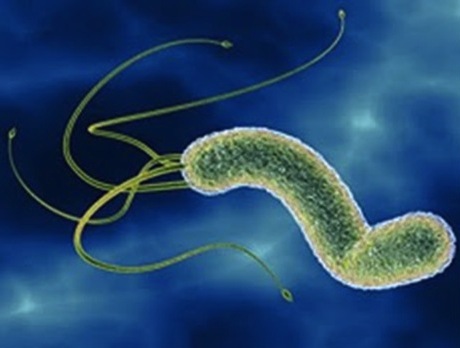Helicobacter pylori is a bacterium that establishes a life-long stomach infection in humans, which in some cases can lead to duodenal ulcers or stomach cancer. New research, presented at this week’s Society for General Microbiology Autumn Conference, gives us a clearer understanding of how these bacteria can manipulate the human immune system to survive in the mucosal lining of the stomach.
Researchers from the University of Nottingham have shown that H. pylori is able to suppress the body’s normal production of ‘human beta defensin 1’ (hβD1), an antimicrobial factor present in the stomach lining that helps prevent bacterial infection. By collecting stomach tissue biopsies from 54 patients at the Queens Medical Centre, Nottingham, the team showed that patients infected with H. pylori had ten times less hβD1 than uninfected patients. Those with the lowest amount of hβD1 had the most bacteria present in their stomach lining.
Katie Cook, who is presenting this work says, “To identify people who are likely to suffer from stomach cancer we need to understand how H. pylori interacts with the cells of the stomach lining. Because our research is patient-focused we know that our findings are directly relevant.
“We hope to combine this work with that being carried out by our colleagues in order to develop a diagnostic test to predict the future risk of gastric cancer development.”
Source: Society for General Microbiology (2013, September 2). Stomach bacteria switch off human immune defenses to cause disease. ScienceDaily. Retrieved September 2, 2013, from http://www.sciencedaily.com /releases/2013/09/130902101712.htm















